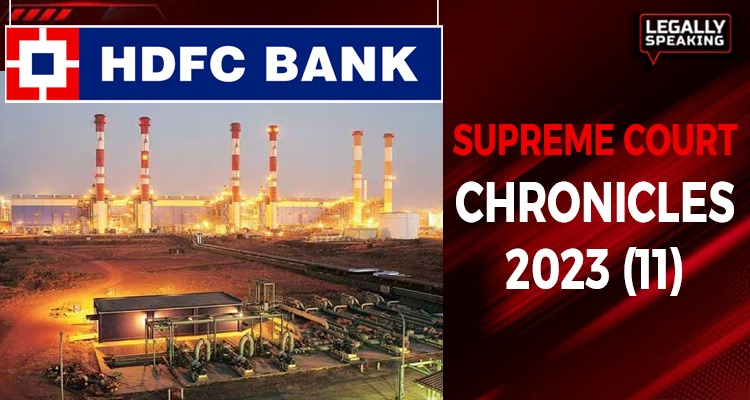
November
HDFC Entitled to Assigned Rents
- Infrastructure Leasing & Financial Services Ltd. v. HDFC Bank Ltd.
The Supreme Court upheld the National Company Law Appellate Tribunal’s (NCLAT) order, affirming that rents receivable by a borrower can be assigned as an “actionable claim” under the Transfer of Property Act, 1882. IL&FS sought financial assistance from HDFC, resulting in a Master Facility Agreement (MFA) and an Assignment Agreement.
NCLAT determined that IL&FS retained no proprietary interest in the escrow account funds assigned to HDFC. The Court emphasized the Power of Attorney, allowing HDFC to appropriate proceeds and exercise rights over the secured property. It clarified that the assignment was not hedged with conditions, entitling HDFC to the assigned proceeds. The Court highlighted the ring-fencing benefits and adherence to RBI guidelines on Lease Rental Discounting.
Examining the contemporaneous documents, the Court concluded that the parties intended to assign rents as debts. Referring to the Transfer of Property Act, the Court rejected the argument of a pledge, affirming the actionable claim status of assigned rents. Consequently, the Court upheld NCLAT’s findings, dismissing challenges to its correctness.
Ratnagiri Gas’s Contractual Rights
- Maharashtra State Electricity Distribution Co. Ltd. v. Ratnagiri Gas & Power (P) Ltd.
The Supreme Court affirmed the decisions of the Central Electricity Regulatory Commission (CERC) and the Appellate Tribunal for Electricity (APTEL) regarding Ratnagiri Gas’s liability for fixed charges. The dispute arose from issues related to non-availability of domestic gas and capacity declarations based on Recycled Liquefied Natural Gas (RLNG). The Court clarified that the Gas Supply Agreement (GSA)/Gas Transportation Agreement (GTA) with GAIL is permissible by the terms of the contract, rendering the consent of Maharashtra State Electricity Distribution Co. Ltd. (MSEDCL) irrelevant. Emphasizing the importance of interpreting commercial documents in alignment with the original intent of the parties, the Court held that deviations from the plain terms of the contract are warranted only for business efficacy. The decision safeguards Ratnagiri Gas’s financial viability in the face of challenges beyond its control and establishes the significance of upholding contractual terms in unforeseen circumstances.




